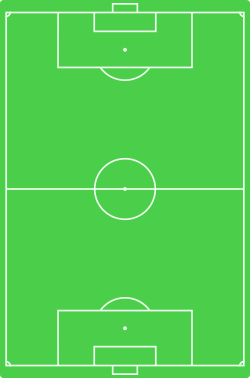Teams
Twenty teams competed in the league – the top seventeen teams from the previous season and the three teams promoted from the First Division. The promoted teams were Manchester City (immediately returning after a season's absence), West Bromwich Albion, and Birmingham City (both teams returning to the top flight after a sixteen-year absence). This was also both West Bromwich Albion and Birmingham City's first season in the Premier League. They replaced Ipswich Town (relegated to the First Division after two seasons in the top flight), Derby County, and Leicester City (both teams relegated after a six-year presence).
Stadiums and locations
- ↑ Fulham temporarily relocated to Loftus Road (home stadium of Queens Park Rangers) after Craven Cottage was in need of a refurbishment.
- ↑ This was Manchester City's last season at Maine Road as they were scheduled to relocate to the 48,000 seater City of Manchester Stadium.
Personnel and kits
Managerial changes
| Team | Outgoing manager | Manner of departure | Date of vacancy | Position in table | Incoming manager | Date of appointment |
|---|---|---|---|---|---|---|
| Leeds United | | Sacked | 27 June 2002 | Pre-season | | 8 July 2002 |
| Sunderland | | 7 October 2002 [4] | 17th | | 10 October 2002 [5] | |
| | 10 March 2003 [6] | 20th | | 12 March 2003 [7] | ||
| Leeds United | | 21 March 2003 [8] | 15th | | 21 March 2003 [9] | |
| Fulham | | 17 April 2003 [10] | 15th | | 17 April 2003 | |
| West Ham United | | Illness | 22 April 2003 [11] | 18th | | 25 April 2003 |



